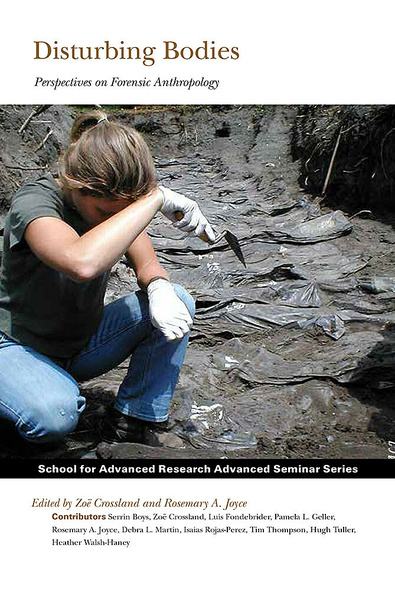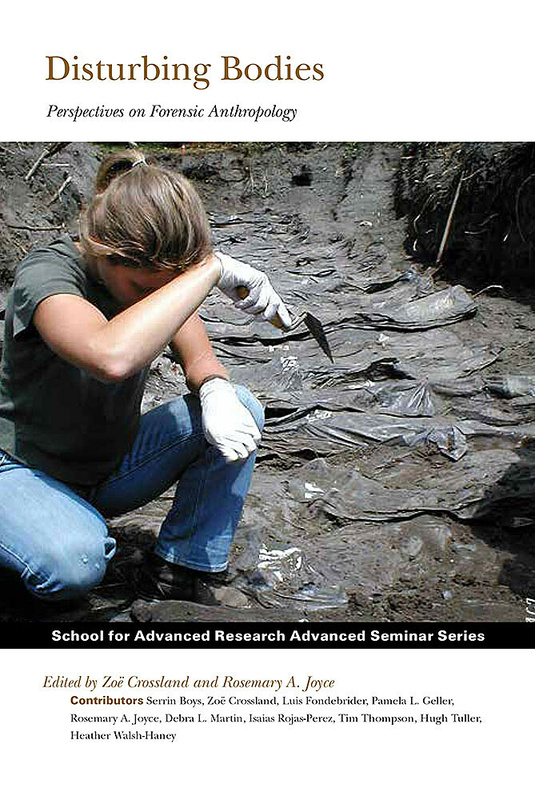Disturbing Bodies
Perspectives on Forensic Anthropology
As bodies are revealed, so are hidden and often incommensurate understandings of the body after death. The theme of "disturbing bodies" has a double valence, evoking both the work that anthropologists do and also the ways in which the dead can, in turn, disturb the living through their material qualities, through dreams and other forms of presence, and through the political claims often articulated around them. These may include national or ethnic narratives that lay claims to bodies, personal memories and histories maintained by relatives, or the constitution of the corpse through performative acts of exhumation, display, and analysis. At the center of this work are forensic anthropologists. Although often considered narrowly in terms of its technical and methodological aspects, forensic practice draws upon multiple dimensions of anthropology, and this volume offers a range of anthropological perspectives on the work of exhumation and the attendant issues.
The strength of the volume is its broad anthropological representation. The authors include biological anthropologists, archaeologists, and a social anthropologist. Even how language is used regarding the deceased is addressed in chapter 10. From this diversity comes recognition of the holistic nature of forensic anthropology in human rights investigations and the acknowledgment that its practice varies in international settings.'--Ginesse A. Listi, American Antiquity
Zoë Crossland is an associate professor of anthropology at Columbia University and the author of AncestralEncounters in Highland Madagascar: Material Signs and Traces of the Dead. Rosemary A. Joyce is the Alice S. Davis Endowed Chair in Anthropology at the University of California, Berkeley. Her many publications include Gender and Power in Prehispanic Mesoamerica and Ancient Bodies, Ancient Lives: Sex, Gender, and Archaeology.





